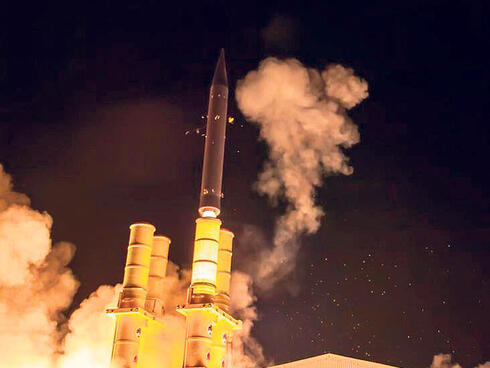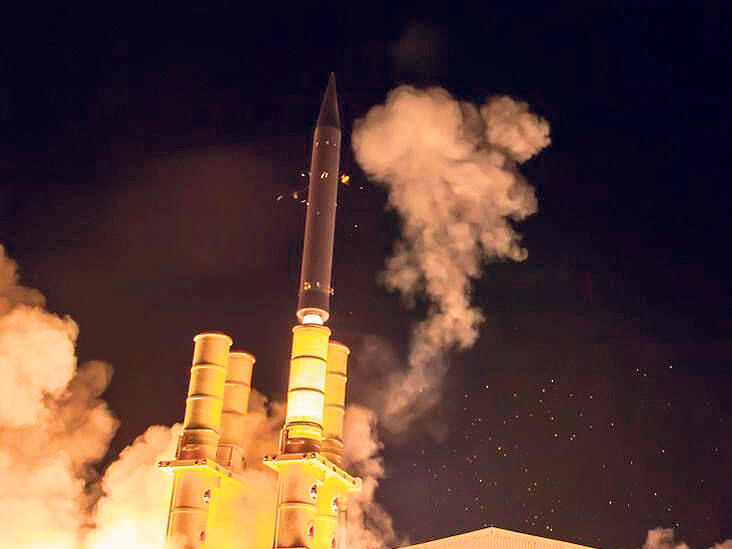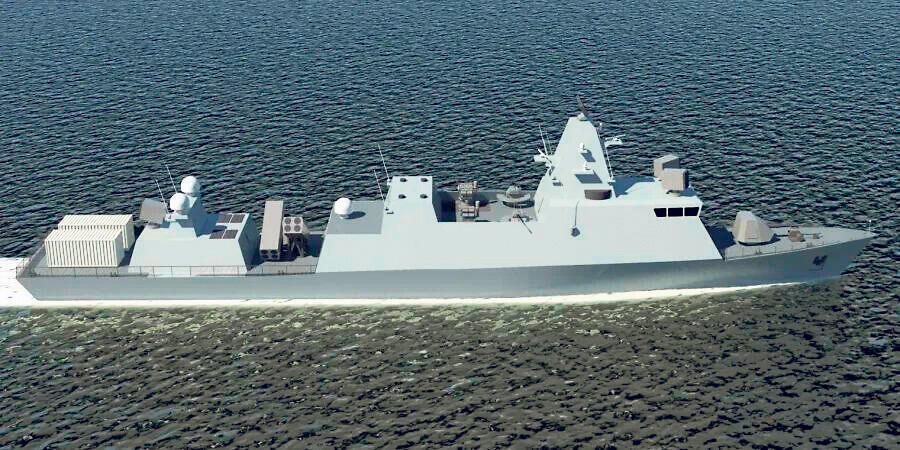
Analysis
Israel ramps up local defense production amid global arms embargoes
Raw material factory and bomb production deal highlight Israel’s push for wartime independence.
Two contracts worth approximately 1.2 billion shekels signed by the Ministry of Defense with Elbit Systems indicate a strengthening of a trend that began last year: reducing the IDF's dependence on foreign armaments. The bulk of the latest contract with Elbit reflects lessons learned from prolonged delays in the supply of heavy air-to-ground bombs intended for the Air Force’s fighter jets, attributed to outgoing U.S. President Joe Biden’s administration.
These one-ton bombs, ordered from American defense industries, were initially expected to arrive by mid-2024 for use in operations in Rafah. However, their delivery was delayed due to concerns within the Biden administration that Israel might use them to target areas near civilian populations, potentially escalating casualties in Gaza.
2 View gallery


Arrow 3 missile test
(Spokesperson & Information Division at the Ministry of Defense)
Approximately one billion shekels from the contract between the Defense Ministry's Department of Production and Procurement (DOPP) and Elbit will fund the production of these bombs in various weights. In recent months, Elbit has expanded its production capabilities to meet the needs of the Air Force. It plans further expansion to produce bomb casings, which are currently imported. This move toward local production aims to provide Israel with end-to-end capabilities in this field, granting the IDF greater operational independence and reducing political pressures from the United States and other countries. According to defense officials, full production capabilities for these bombs are expected to be operational by mid-year.
The second initiative, led by the Ministry of Defense's Directorate of Defense, Research, and Development (DDR&D), addresses global arms embargoes imposed on Israel amid ongoing conflict. Approximately 220 million shekels will be allocated to establish a new, first-of-its-kind factory in southern Israel to produce raw materials essential for weapons manufacturing across the country’s defense industries.
This "national factory," to be built by Elbit, is intended to eliminate Israel’s reliance on importing raw materials critical to defense production. Beyond independence in weapons manufacturing, the move also ensures the availability of explosives and chemical compounds, which are increasingly in high demand globally, driving up prices.
Until about two decades ago, Israel maintained sufficient production capabilities through Israel Military Industries (IMI). However, these capabilities diminished over time as economic considerations favored importing such products. In addition to expanding bomb and explosive production, the defense establishment aims to ramp up local manufacturing of subcomponents and assemblies that are currently sourced from overseas. "Circumstances have changed, and current needs have led us to rethink and renew capabilities in these areas," a senior Defense Ministry official told Calcalist.
The Defense Ministry also plans to prioritize Israeli companies in upcoming procurement for navigation systems. Many of the systems currently used by the IDF were purchased from American and European suppliers but will be gradually replaced by Israeli-made systems over the coming years. "We are laying the foundations for expanding manufacturing independence in two critical areas for the IDF's operational sustainability - domestic production of heavy air munitions and establishing a national raw materials plant," Defense Ministry Director General Eyal Zamir said. "Both agreements will ensure sovereign capability in producing bombs and munitions of all types. We initiated this historic move before the war but accelerated it during it. Under both agreements, initial capabilities will soon gradually expand until we achieve full independence in both areas. This is a central lesson from the war that will enable the IDF to continue operating powerfully in all theaters."
Recent defense procurement efforts indicate a military buildup relying heavily on local production in the coming years. Over the last three months alone, the Defense Ministry has directed significant spending toward domestic industries. This includes billions of shekels for Arrow 3 interceptor missiles from Israel Aerospace Industries (IAI), hundreds of millions for spare parts and components for tanks and armored personnel carriers from Ashot Ashkelon Industries (controlled by FIMI), and approximately 2.5 billion shekels for Reshef-class combat ships from Israel Shipyards to replace aging naval vessels while preserving local expertise.
Israeli drone manufacturers have also benefited from large-scale orders. Drones have become central tools for IDF operations in Gaza, southern Lebanon, and the West Bank. The total value of drone orders from various companies is nearing half a billion shekels, with Elbit Systems receiving 150 million shekels. Other significant recipients include Aerodrome and Xtend.
A few weeks ago, Ari Arms, a relatively unknown arms company led by Avihai Stolero and Oren Ankonina, won a Ministry of Defense tender to produce and supply OR-4 rifles for IDF infantry. The OR-4 is a locally developed derivative of the M-16 and M-4 rifles. Ari Arms is contracted to manufacture up to 20,000 rifles for approximately 100 million shekels.
Not all contracts have been free of controversy. Some companies that lost tenders have questioned whether their competitors can deliver. However, a recent review confirmed Ari Arms’ ability to meet the conditions of its tender. Ari Arms was formerly known as Amir Technologies and specialized in metal products until Stolero joined the company last year. Concerns were raised about whether its infrastructure could support large-scale rifle production. Regardless, the Ministry of Defense plans to issue another tender for similar rifles.
Since the current war began, the Defense Ministry has placed orders exceeding NIS 100 billion with Israeli companies. Of this, NIS 40 billion came from the DOPP, led by Zeev Landau, reflecting a nearly fourfold increase in annual procurement compared to pre-war levels. Defense officials expect similar spending in the coming years, focusing on tank and vehicle restoration and replenishing IDF stockpiles.
Responding to the controversy, Ari Arms stated, "Our company represents Israeli industry at its best. The OR-4 model, manufactured entirely in Israel, is the highest-quality assault rifle currently produced in the country and among the best in the world. This was confirmed during extensive tests by the Defense Ministry. IDF soldiers are equipped with the best weapons available, and we are proud to contribute to the state’s defense while upholding the highest standards and legal requirements."














